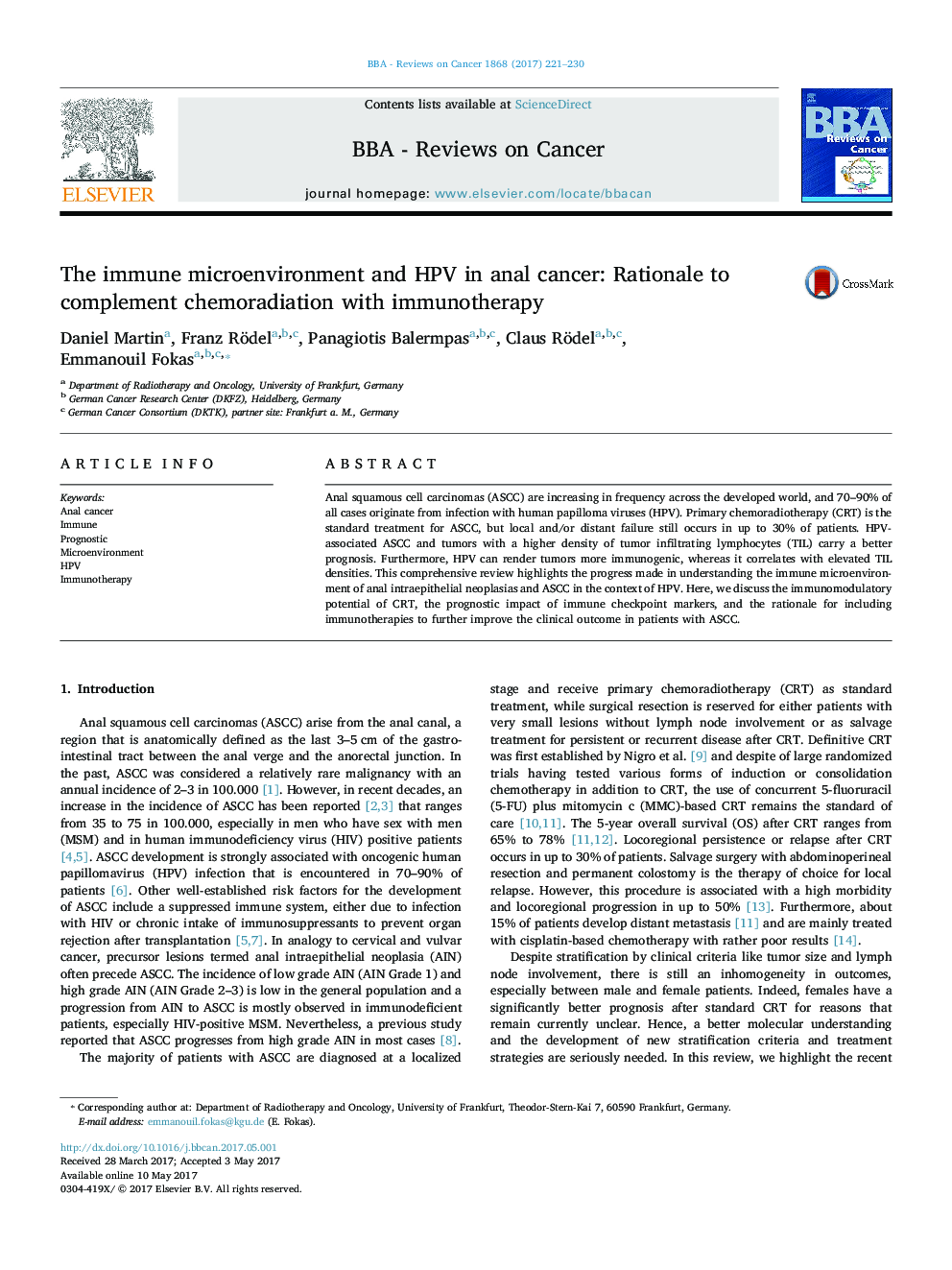| Article ID | Journal | Published Year | Pages | File Type |
|---|---|---|---|---|
| 5524012 | Biochimica et Biophysica Acta (BBA) - Reviews on Cancer | 2017 | 10 Pages |
Anal squamous cell carcinomas (ASCC) are increasing in frequency across the developed world, and 70-90% of all cases originate from infection with human papilloma viruses (HPV). Primary chemoradiotherapy (CRT) is the standard treatment for ASCC, but local and/or distant failure still occurs in up to 30% of patients. HPV-associated ASCC and tumors with a higher density of tumor infiltrating lymphocytes (TIL) carry a better prognosis. Furthermore, HPV can render tumors more immunogenic, whereas it correlates with elevated TIL densities. This comprehensive review highlights the progress made in understanding the immune microenvironment of anal intraepithelial neoplasias and ASCC in the context of HPV. Here, we discuss the immunomodulatory potential of CRT, the prognostic impact of immune checkpoint markers, and the rationale for including immunotherapies to further improve the clinical outcome in patients with ASCC.
